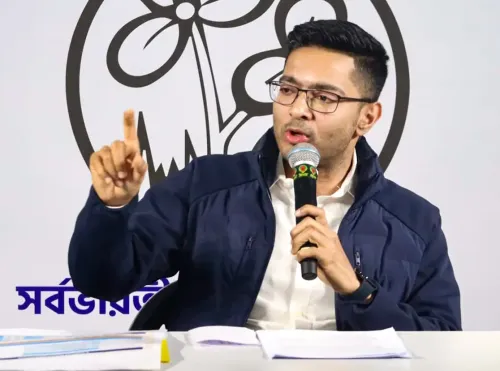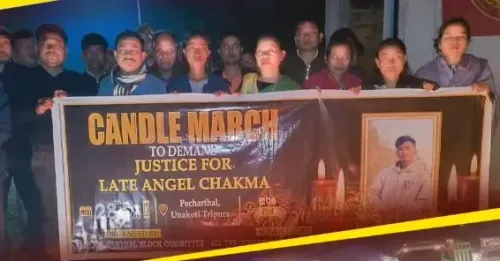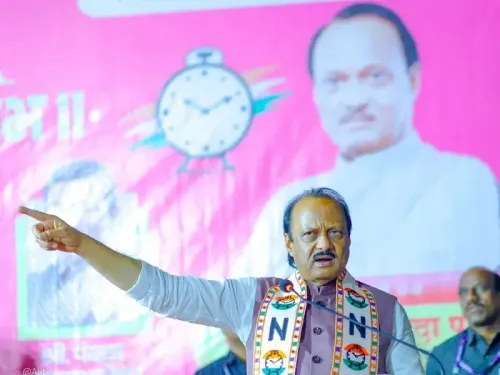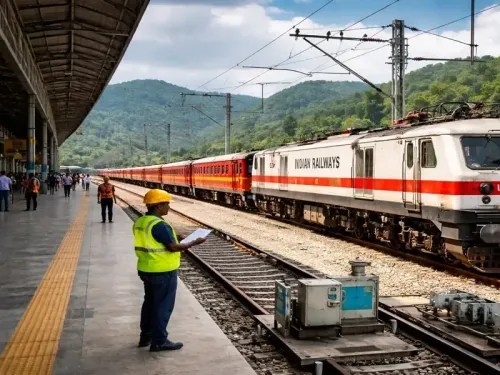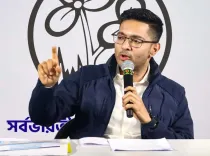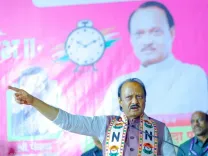Is the Telangana Caste Survey a Turning Point for Social Justice?
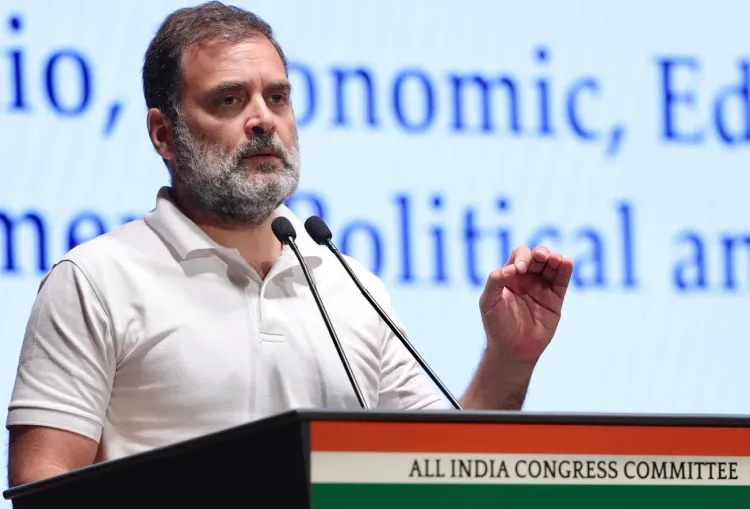
Synopsis
Key Takeaways
- The Telangana caste survey is a milestone for social justice.
- It sets a new standard for the national caste census.
- Reservations for backward classes have been increased to 42 percent.
- The survey data enables targeted development initiatives.
- Rahul Gandhi calls for breaking the 50 percent reservation ceiling.
New Delhi, July 24 (NationPress) The caste survey carried out by the Congress government in Telangana marks a significant achievement for social justice across the nation, according to Rahul Gandhi, the Leader of the Opposition (LoP) in the Lok Sabha. He emphasized that this survey will influence the framework for the national caste census.
Gandhi criticized the Modi administration, stating that it would not conduct the census appropriately. He remarked, “It is evident that the Modi government is incapable of presenting the true status of OBCs, Dalits, Tribals, and even the General category. Their entire narrative collapses if they reveal the facts,” he asserted.
His comments came after Chief Minister A. Revanth Reddy and Deputy Chief Minister Mallu Bhatti Vikramarka provided a PowerPoint presentation on the caste survey to Congress MPs on Thursday evening.
In attendance were Rahul Gandhi, AICC president Mallikarjun Kharge, MP Priyanka Gandhi, and other prominent leaders, as they discussed the model and methodology of the Socio-Economic, Education, Employment, Political and Caste (SEEEPC) survey.
The CM and Deputy CM informed the MPs that, based on the findings from this survey, two Bills have been passed to elevate the reservation for BCs to 42 percent in education, employment, and local governance. These Bills have been forwarded to the Centre for inclusion in the 9th Schedule of the Constitution, which will result in the total reservation exceeding the 50 percent threshold.
The Telangana leaders requested the support of Congress MPs to pressure the Modi government to incorporate the 42 percent BC reservation into the 9th Schedule, highlighting its significance.
Reiterating his call to break the 50 percent reservation barrier, LoP Rahul Gandhi accused the Modi government of hindering progress in Telangana.
“We must ensure that every individual in India comprehends the situation in Telangana and how the central government is obstructing the state’s progress. We have clearly stated our intention to dismantle the 50 percent reservation ceiling,” he stated.
“The Telangana government has submitted a proposal to the President of India expressing the desire to exceed the 50 percent limit in education, government jobs, and the Panchayati Raj system, yet the central government is obstructing it,” he added.
LoP Rahul Gandhi praised Revanth Reddy and other party leaders for their effective execution of the survey.
“They not only conducted the caste census but did so with exceptional efficiency and integrity. I can confidently assert that their competence sets a new standard for social justice in the country. It will establish a benchmark for a nationwide caste census, irrespective of the BJP's stance,” he remarked.
The Congress leader acknowledged that the party had not adequately addressed OBC issues in the past, which created an opening for the BJP.
“In my view, the Congress party has been proactive regarding Dalit, Adivasi, and women's issues. However, I recognize that we fell short in addressing OBC challenges effectively. We did not fully grasp their struggles or take necessary actions, which allowed the BJP to seize the initiative,” stated LoP Rahul Gandhi.
“The Congress party must be attentive to all communities. We need to ensure that every group feels acknowledged and supported, safeguarding the interests of all Indians,” he added.
LoP Rahul Gandhi asserted that in today’s world, data equates to power. “In the past, people believed that oil-rich countries held power. Today, data defines that power,” he noted.
The Congress leader explained that Telangana now possesses 21st-century socio-economic, political, and financial data.
“This data empowers Telangana to drive development at a grassroots level. We can focus on caste, education, or health initiatives using this information. No other state can target development as effectively as Telangana can,” concluded LoP Rahul Gandhi.
He urged Revanth Reddy to utilize this data to transform the lives of Telangana's citizens.


